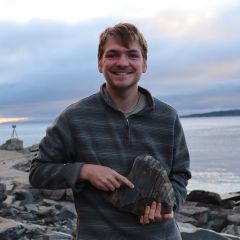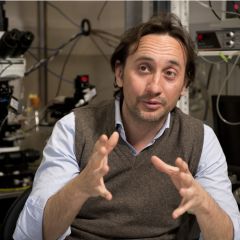Natural Sciences (Biological)
The Natural Sciences Tripos is the framework within which sixteen different Faculties and Departments at Cambridge deliver undergraduate training in a wide range of physical and biological sciences, as well as the history and philosophy of science. Students apply to study either Natural Sciences (Biological) or Natural Sciences (Physical).

Course overview
The Natural Sciences Tripos provides students with a multidisciplinary scientific background, increasingly important in modern science, before allowing them to specialise in their chosen subject. The course therefore provides the intellectual breadth and depth which allows students to both experience new areas of science and to make connections across traditionally discrete disciplinary boundaries, substantially enriching their understanding of their specialist subject. All Natural Sciences students study for three years, leading to a BA degree, and some continue to study for an additional fourth year, leading to a MSci degree.
Biological science subjects at Cambridge include:
- Biochemistry
- Genetics
- Pathology
- Pharmacology
- Physiology, Development and Neuroscience
- Plant Sciences
- Psychology
- Zoology
There is significant flexibility, however, within the Tripos, and students admitted to Natural Sciences (Biological) can choose from a variety of courses (including biological and physical science options), although specific subjects have essential or desirable prerequisites.
For more information about the course and its modules, visit the University website.
What is it like to study Natural Sciences (Biological) at King’s?
Given the diversity of choices, a typical week is hard to define. Cornerstones include lectures and practical classes in the Faculty and supervisions in King’s. Each contribute to building your knowledge, aptitude, and reasoning in the chosen subject. Supervisions are small group (usually one to three) interactive sessions which occur once a week per subject and give time to reflect on the learning for the week, ask questions about the material, and integrate information. Supervisions often include set work to cement the understanding, which may take the form of essays, presentations, or problem sheets. King’s typically admits approximately six Natural Sciences (Biological) students per year.
What do we look for in an applicant to Natural Sciences (Biological)?
Biological Natural Sciences is well suited to naturally curious individuals with a keen interest in exploring why the natural world is the way that it is. We are interested in how you think, what excites you, and how you approach the unknown, not simply in what you already know. Great Natural Scientists are comfortable with the unknown; this is where discoveries happen.
Requirements
A Level: A*A*A
IB: 41-42 points overall with 7, 7, 6 at Higher Level
Subject requirements: Mathematics and any two other science or maths subjects from Biology, Chemistry, Physics, and Further Mathematics
Admissions assessment: Engineering and Science Admissions Test (ESAT)
Written work: None
Admissions assessment
Candidates for Natural Sciences (Biological) must take the ESAT, which is a pre-registration required test. The Mathematics 1 module is compulsory for all candidates, and you will then need to complete two additional multiple-choice modules from Biology, Chemistry, Physics, and Mathematics 2. For more information about the test, please see the University website.
Careers and graduate opportunities
The Natural Sciences course prepares students well for the challenges of research, especially in emerging, interdisciplinary areas. Many graduates continue with further study or research, and many go directly into a broad range of careers, including programming and software development, financial management, management consultancy, and teaching.
What is the best thing about studying Natural Sciences (Biological) at King’s?
Natural Sciences is one of the larger subjects in the College, supported by a good number of Fellows, hence students are part of a strong and supportive cohort. King’s is fortunate to be able to offer funded research internship opportunities through its Summer Research Programme, and biological natural scientists regularly make successful applications to gain research experience and work in research laboratories across Cambridge during the summer vacation, in some cases leading to publication. King’s has a long history of notable biologists - former Fellows include Nobel laureates Fred Sanger (two Nobel prizes!) and Sydney Brenner. Perhaps the next one could be you!
A top tip for applicants to Natural Sciences (Biological) at King’s
Try to find what excites you the most in the natural world, and think about what you need to know to understand it.
People
The Directors of Studies for 2025-2026 are Prof. Sarah Lummis (Part IA), Dr Marco Tripodi (Part IB), and Dr Sebastian Eves-van den Akker (Part II and Part III).





